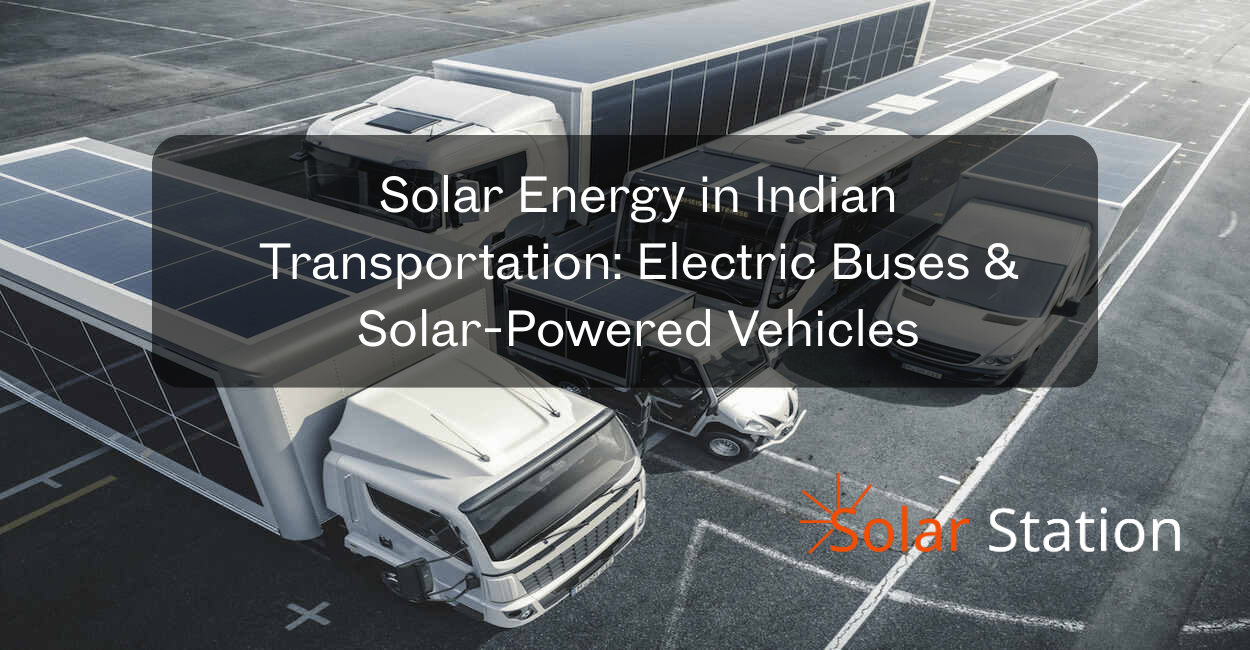
Solar Energy in Indian Transportation: Electric Buses & Solar-Powered Vehicles
Date:-2025-07-15India’s expanding cities and growing vehicle numbers are increasing pollution and straining energy resources. To combat this, solar-powered transportation—including electric buses, solar cars, and solar electric rickshaws—is emerging as a sustainable, low-emission option that can transform the future of urban and rural mobility.
Why Solar Matters in Indian Transport
- Abundant sunlight makes India ideally suited for solar energy use.
- Solar-powered vehicles emit zero tailpipe pollution, improving air quality.
- They promise long-term savings, reducing dependence on fossil fuels and lowering operational costs.
Solar-Electric Buses Leading the Change
- Cities across India are deploying electric buses at scale, with several integrating solar power into operations for added sustainability.
- Surat has pioneered a fully solar-powered electric bus depot, powered by a 100 kW rooftop solar system combined with battery storage, supplying clean energy year-round.
- BYD K9 buses, with robust safety-tested battery tech, have logged over 335 million km across 35 cities, capturing over 24% of India’s e-bus segment.
- Transport operators like Olectra Greentech continue to scale fleets using BYD chassis, improving coverage and reducing diesel dependency.
Solar Cars, Rickshaws & EV Fleets
- Vayve Mobility’s Eva, launched in 2025, is India's first solar-integrated electric car—offering a 250 km range on a charge and up to 3,000 km annually via rooftop solar. It’s ideal for cost-conscious urban commuters.
- The SERVe (Solar Electric Road Vehicle) is an early Indian prototype with four wheels and solar-covered roof, designed for zero-emission driving.
- Zevo India, targeting logistics and ride services, commits to solar-powered charging infrastructure, aiming for half its facilities to run on solar power and expanding across metros.
- GreenCell Mobility is transitioning its NueGo intercity bus fleet to run entirely on clean energy from wind-solar hybrid plants, setting new standards in net-zero transportation.
Integrated Infrastructure: Transit + Solar Rooftops
- Major projects like the Delhi–Meerut RRTS corridor will install 25,000 solar panels across stations and depots to meet 70% of their energy needs, reducing emissions over decades.
- Such integration demonstrates how solar infrastructure can support electric transport systems end-to-end.
The Road Ahead
Solar-powered transportation in India is transitioning from pilot programs to scalable models. With:
- Improving solar panel and battery technologies
- Supportive government policies
- And entrepreneurial innovations
India is well-positioned to become a global leader in clean mobility, ensuring better air quality, energy autonomy, and affordable transport solutions.












